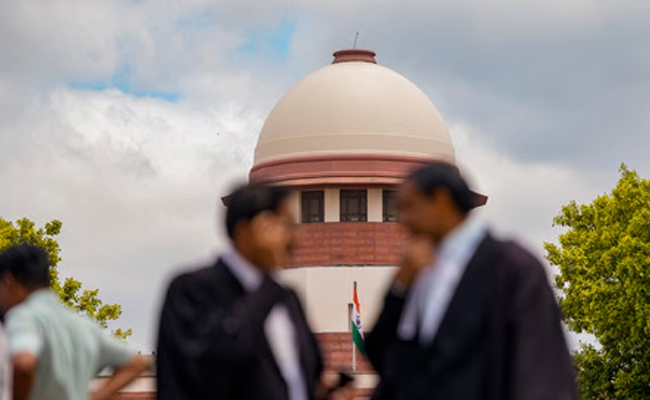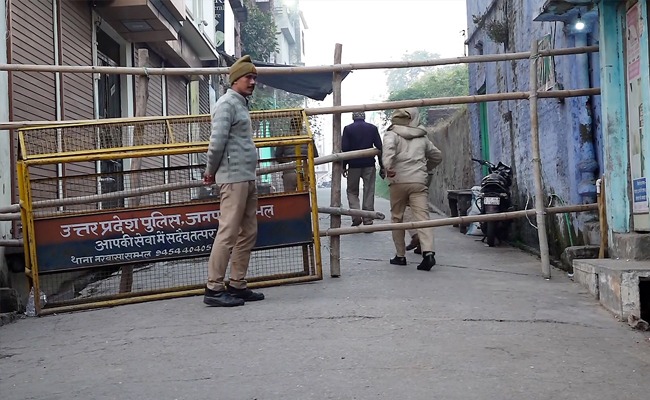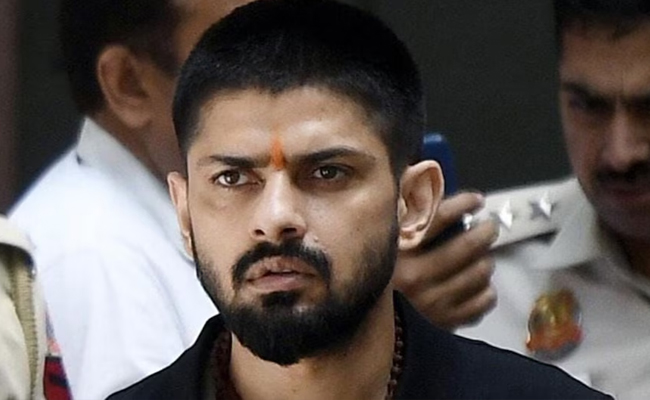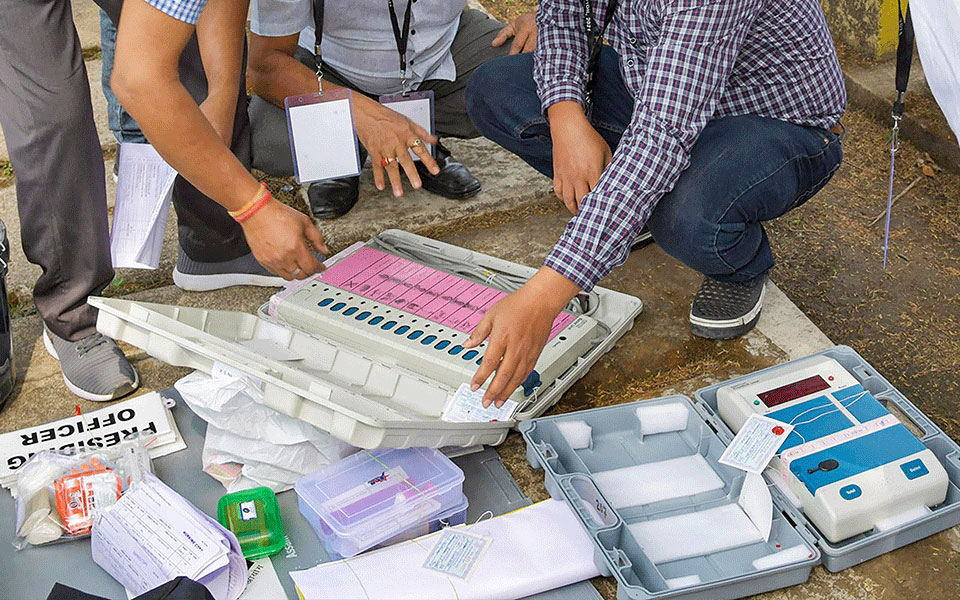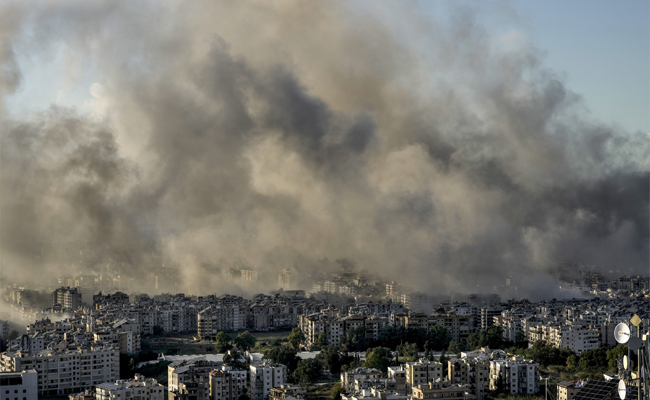New Delhi (PTI): "Right to live with dignity extends even to incarcerated" and its denial to the prisoners is a "relic of the colonizers and pre-colonial mechanisms," the Supreme Court has said.
The observations were made by a bench comprising Chief Chief Justice D Y Chandrachud and Justices J B Pardiwala and Manoj Misra in a landmark judgement delivered on Thursday by which it banned caste-based discrimination like division of manual labour, segregation of barracks, and bias against prisoners of denotified tribes and habitual offenders.
It held as unconstitutional the certain objectionable prison manual rules of 10 states including Uttar Pradesh, West Bengal, Madhya Pradesh, Andhra Pradesh, Odisha, Kerala, Maharashtra, Karnataka, and Himachal Pradesh.
The CJI, penning the 148-page judgement for the bench, dealt with fundamental rights under Articles 14 (equality), 15 (prohibition of discrimination), 17 (abolition of untouchability), 21 (right to life and personal liberty), and 23 (right against forced labour) of the Constitution.
Dealing with Article under 21, it said, "The right to live with dignity extends even to the incarcerated. Not providing dignity to prisoners is a relic of the colonizers and pre-colonial mechanisms, where oppressive systems were designed to dehumanize and degrade those under the control of the State.
"Authoritarian regimes of the pre-constitutional era saw prisons not only as places of confinement but as tools of domination. This Court, focusing on the changed legal framework brought out by the Constitution, has recognized that even prisoners are entitled to the right to dignity."
On Article 14, it said the state shall not deny to any person equality before the law or the equal protection of the laws within the territory of India and equality is a crucial aspect of the constitutional vision.
"The constitutional standards laid down by the Court under Article 14 can be summarized as follows. First, the Constitution permits classification if there is intelligible differentia and reasonable nexus with the object sought. Second, the classification test cannot be merely applied as a mathematical formula to reach a conclusion...," it said.
The judgment then dealt with Article 15 which prohibits discrimination on grounds of caste, race, religion, language etc.
"If the State itself discriminates against a citizen under any of the mentioned grounds, then it is discrimination of the highest form. After all, the State is expected to prevent discrimination, not perpetuate it. That is why our Constitution prohibits the State from discriminating against any citizen," it said.
Discrimination is prohibited, because it has several repercussions on human lives and it arises due to a feeling of superiority or inferiority, bias, contempt, or hatred against a person or a group, it said.
"In history, such feelings have led to the genocide of certain communities. Discrimination also lowers the self-esteem of the person being discriminated against. It can lead to unfair denial of opportunities and constant violence against a set of people. Discrimination can also be done by continuously ridiculing or humiliating someone, who is on the weaker side of the social spectrum. It can cause trauma to a person with which they may be affected their entire life.
"Discrimination also includes stigmatizing the identity or existence of a marginalized social group. Discrimination can also happen based on certain stereotypes against a marginalized group. As a society that divided people into a hierarchy, we must remain conscious of the forms and kinds of discrimination against marginalized groups.
"Discriminatory laws enacted before the Constitution of India came into force need to be scrutinized and done away with," the CJI said.
Dealing with Article 17 which bans untouchability, it said it is abolished and its practice in any form is forbidden.
The enforcement of any disability arising out of "untouchability" shall be an offence punishable in accordance with law and this provision has a special place in the Constitution as it puts an end to the socially discriminatory practice, the bench said.
"Article 17 enunciates that everyone is born equal. There cannot be any stigma attached to the existence, touch or presence of any person. By way of Article 17, our Constitution strengthens the equality of status of every citizen...," it said.
"It has been held that the right to life enshrined in Article 21 'cannot be restricted to mere animal existence' and 'means something much more than just physical survival'," it said.
It includes the right to live with dignity and in fact, dignity forms a part of the basic structure of the Constitution, it said. "In that sense, human dignity is a constitutional value and a constitutional goal."
The bench added, "Human dignity is intrinsic to and inseparable from human existence. Implicit in this right under Article 21 is 'the right to protection against torture or cruel, inhuman or degrading treatment'."
It then remarked on Article 23 which deals with the prohibition of forced labour and human trafficking and said that by allowing such prison rules the states are becoming part of the offence.
It gave instances of caste-based discriminations in prisons, such as viewing as cruelty forcing a man of 'higher caste' to work at any trade would 'disgrace him' and his family.
Let the Truth be known. If you read VB and like VB, please be a VB Supporter and Help us deliver the Truth to one and all.
Lucknow (PTI): The Uttar Pradesh government will make protesters involved in the Sambhal violence pay for damage to public property while posters of "stone pelters" will be displayed at public places, an official said on Wednesday.
Four people died and scores, including police personnel, were injured in Sambhal on Sunday after a confrontation erupted over a court-ordered survey of the city's Shahi Jama Masjid in Kot Garvi area, following a petition claiming that a Harihar temple once stood at the site.
"The UP government is adopting a firm stance against the individuals involved in the Sambhal violence. Posters of the stone pelters and miscreants will be displayed publicly, and recovery of damages will be sought. A reward may also be announced for information leading to their arrest," an official spokesperson said.
In a similar initiative, the government had previously put up posters of individuals linked to vandalism during the anti-CAA protests in 2020. These posters were displayed across several locations, including the state capital, but were later removed following a court order.
The violence in Sambhal erupted on Sunday when a large crowd gathered near a mosque and began chanting slogans as a survey team resumed its work. The situation escalated when the protesters clashed with security personnel, set vehicles on fire, and pelted stones.
So far, police have arrested 25 individuals and registered seven FIRs, which include charges against Zia-ur-Rehman Barq, the Samajwadi Party MP from Sambhal, Sohail Iqbal, son of the party's local MLA Iqbal Mehmood, and over 2,750 unidentified suspects.
A magisterial probe is underway, and Superintendent of Police Krishna Kumar Vishnoi stated on Monday that the situation was now under control. He assured that "strict action will be taken against those responsible for the unrest."

